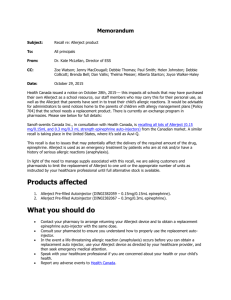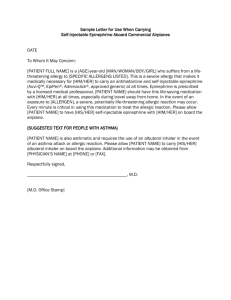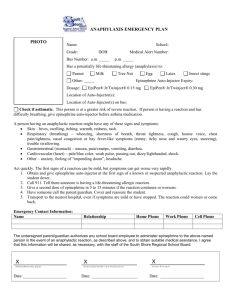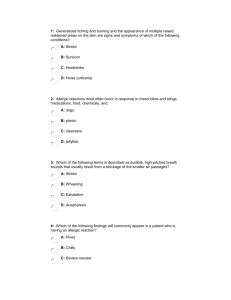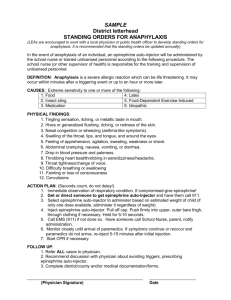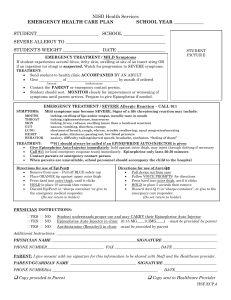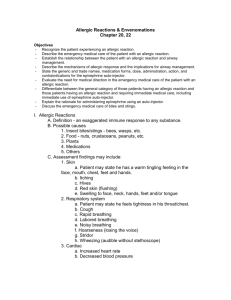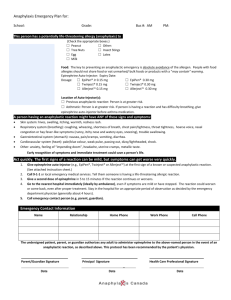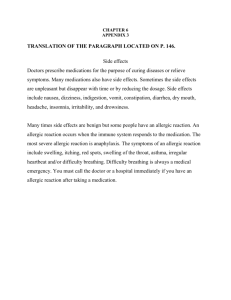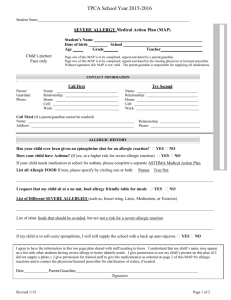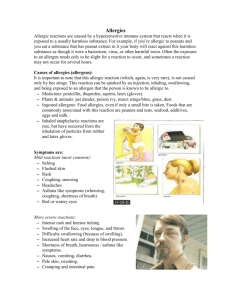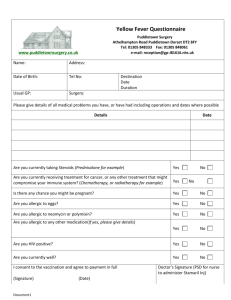Allergic Reactions
advertisement
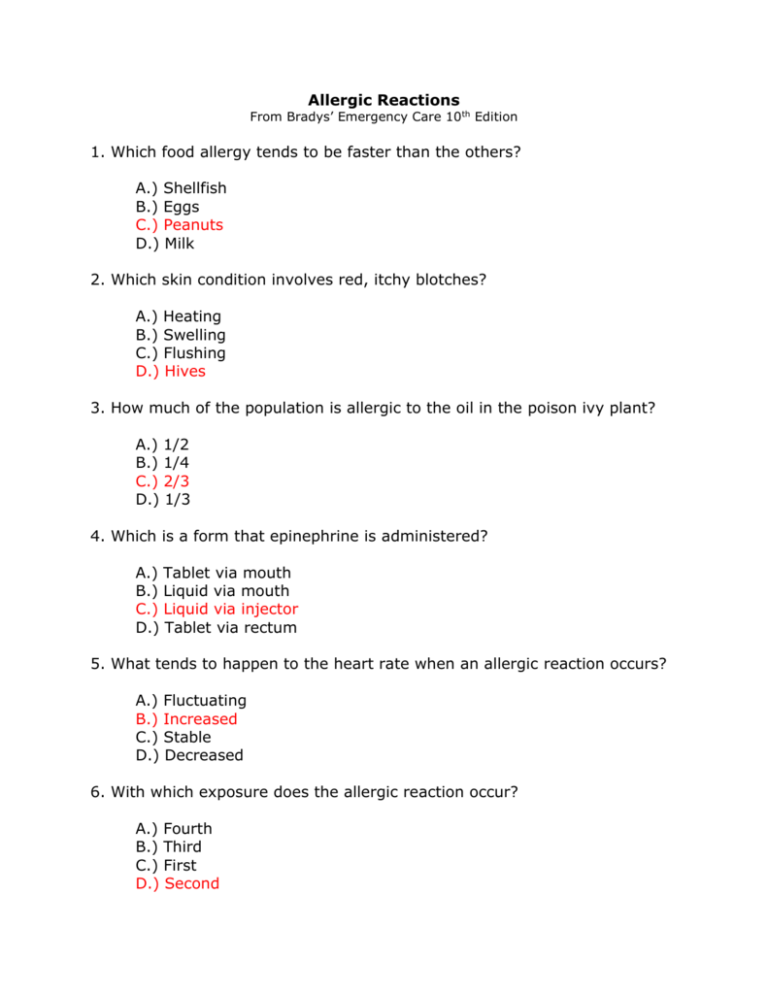
Allergic Reactions From Bradys’ Emergency Care 10th Edition 1. Which food allergy tends to be faster than the others? A.) Shellfish B.) Eggs C.) Peanuts D.) Milk 2. Which skin condition involves red, itchy blotches? A.) Heating B.) Swelling C.) Flushing D.) Hives 3. How much of the population is allergic to the oil in the poison ivy plant? A.) 1/2 B.) 1/4 C.) 2/3 D.) 1/3 4. Which is a form that epinephrine is administered? A.) Tablet via mouth B.) Liquid via mouth C.) Liquid via injector D.) Tablet via rectum 5. What tends to happen to the heart rate when an allergic reaction occurs? A.) Fluctuating B.) Increased C.) Stable D.) Decreased 6. With which exposure does the allergic reaction occur? A.) Fourth B.) Third C.) First D.) Second 7. What does epinephrine do to the patient's blood pressure? A.) Decrease B.) Stabilize C.) Fluctuate D.) Increase 8. What is a product that EMT-B's should be alert to as a possible allergen? A.) Latex B.) Perfume C.) Rubber D.) Makeup 9. How long after administering an epinephrine injection should the patient be reassessed? A.) 5 minutes B.) 3 minutes C.) 2 minutes D.) 4 minutes 10. Which patient should NOT be given an auto-injector of epinephrine? A.) Has asthma in addition to allergies B.) Has high blood pressure C.) Is obesely overweight D.) Is under the age of 16 years 11. How many doses of epinephrine can an auto-injector deliver? A.) 2 B.) 1 C.) 3 D.) 4 12. How long should the injector be held in place when administering from the epinephrine auto-injector? A.) 8 seconds B.) 10 seconds C.) 4 seconds D.) 6 seconds 13. When should the patient's vital signs be taken in a patient with a possible allergic reaction? A.) During the initial assessment B.) After the focused exam C.) Before the physical exam D.) After the secondary assessment 14. Which part of the body is used to give an injection from the epinephrine auto-injector? A.) Arm B.) Thigh C.) Calf D.) Stomach 15. What is a life-threatening reaction to an allergen? A.) Anaphylaxis B.) Shock C.) Coping mechanism D.) Allergic reaction 16. Which item below distinguishes the difference between an allergic reaction and anaphylactic shock? A.) Increased heart rate B.) Respiratory distress C.) Runny nose D.) Decreased coughing
